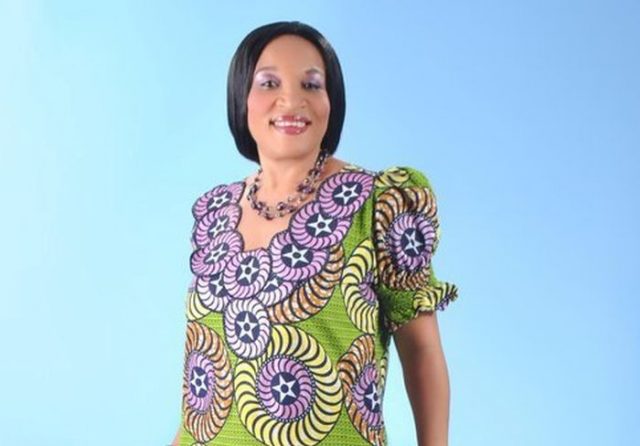Nollywood actress Ngozi Nwosu has shared her harrowing experience with domestic violence. She recently revealed that it made her walk away from her former husband, and fans have been reacting.
According to Ngozi, her neighbours once saw her naked during a heated altercation with her abusive partner, and the violent experience eventually forced her to leave him to save her life.

The moviestar then urged women not to fall for any man who would beat them and then beg later.
Her words, “My husband is this kind of violent person. I went to the kitchen to boil water, and he broke the kitchen door. I will never forget that day till I die.
I plaited Bob Marley, he drew me, and one strand of the attachment came out with blood.
I didn’t know where I got the strength from, but I picked up a pestle. I was ready to kill him that day and go to jail. My neighbours saw me naked.
When I saw the domestic violence coming from his side, I walked away a day before our marriage and refused to sign the registrar.
Don’t fall for any man who beats you and begs you later. Once beaten twice shy. If you take it once, you just be ready to take it for the rest of your life.”
WOW.
Nollywood is a sobriquet that originally referred to the Nigerian film industry. The origin of the term dates back to the early 2000s, traced to an article in The New York Times. Due to the history of evolving meanings and contexts, there is no clear or agreed-upon definition for the term, which has made it a subject to several controversies.
The origin of the term “Nollywood” remains unclear; Jonathan Haynes traced the earliest usage of the word to a 2002 article by Matt Steinglass in the New York Times, where it was used to describe Nigerian cinema.
Charles Igwe noted that Norimitsu Onishi also used the name in a September 2002 article he wrote for the New York Times. The term continues to be used in the media to refer to the Nigerian film industry, with its definition later assumed to be a portmanteau of the words “Nigeria” and “Hollywood”, the American major film hub.
Film-making in Nigeria is divided largely along regional, and marginally ethnic and religious lines. Thus, there are distinct film industries – each seeking to portray the concern of the particular section and ethnicity it represents. However, there is the English-language film industry which is a melting pot for filmmaking and filmmakers from most of the regional industries.
Support InfoStride News' Credible Journalism: Only credible journalism can guarantee a fair, accountable and transparent society, including democracy and government. It involves a lot of efforts and money. We need your support. Click here to Donate
